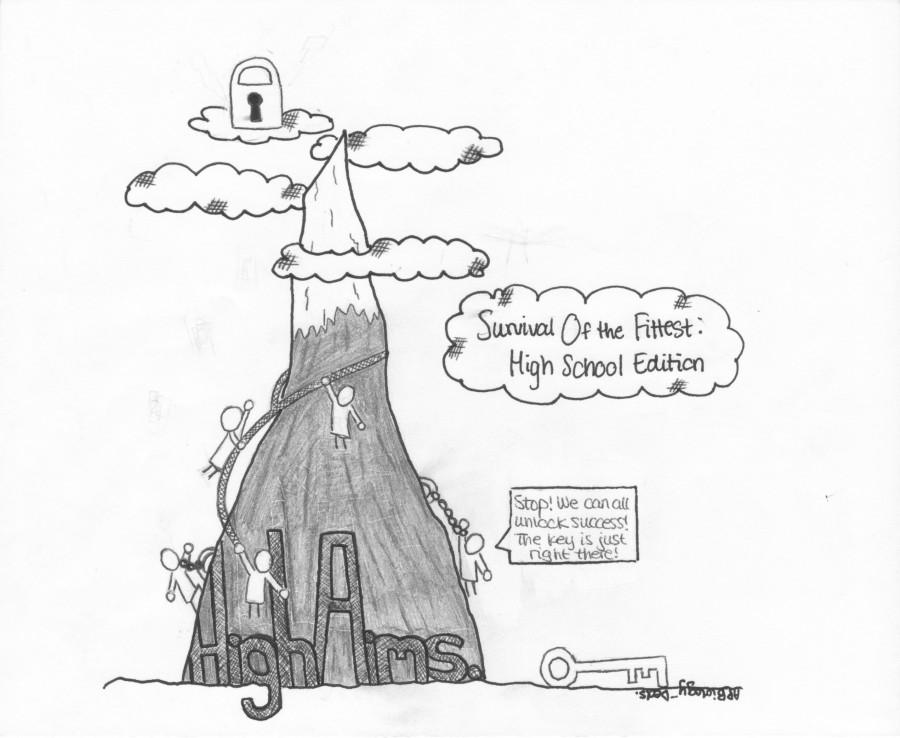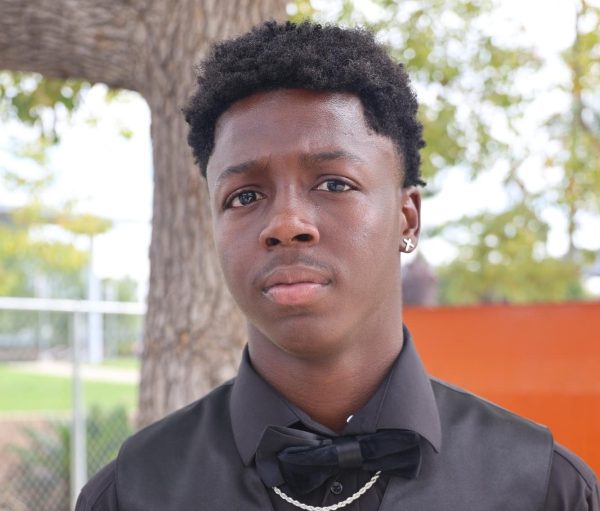Competitive Society Breeds Unhealthy Lifestyle
Everything is a competition. From the last job opening to the one parking spot left, everyone seeks success by beating those around them. One of the greatest examples of this is found in the education system. Schools should educate and cultivate a person’s intellectual capabilities with values and principles that help them differentiate right from wrong.Unfortunately, they only teach students to make themselves better than the person sitting right next to them rather than teaching them to work together with one another to achieve both of their full academic potentials. High schools should not stress being the best more than they encourage students to reach their personal capabilities. High schools should lead students to understand that working their hardest is more important than beating the person next to them. The world’s competitive culture is telling students that it is not enough to be good at a particular skill, but that they must be second to no other.
Everyone competes with one another throughout high school academics as well as activities, yet there is only one salutatorian, one school president, one varsity captain, and one valedictorian. If one person finds triumph, then the others cannot. When someone becomes a hurdle in the way of the success of others, it leads students to become wary of one another, as it would be illogical to open up to those who benefit from their own failure. On the other hand, teamwork promotes helping others and interacting with divergent people. Social psychologist, David W. Johnson, inspected all of the studies he could find on the effects of competition in a school environment. Sixty-five of the studies found that children perform better when they work together versus competitively, only eight found the opposite, and 36 found no significant contrast. These studies further illustrate that high schools should be the first to demonstrate model cooperation and show students how to discover success without involving the defeat of a fellow classmate.
Most of the people involved in competition do not end up victorious, and many people feel substandard and blame themselves for their failures. Students should not feel that their value is defined by how they compare to others. Grades or class rank does not determine the quality of a person. Being the best in a class does not reflect one’s principles or worth. It only puts them on a pedestal and further encourages the idea of superiority above their peers. The results of either winning or losing in competition are both unpleasant. Being the number one person has become the norm, and rather than parents rewarding their children for doing their best, they praise them for being the best. All of these little things accumulate, and it ends up being very harmful for a developing student.
Many people think that competition in moderation is beneficial and encourages everyone involved to better themselves through competing with those around them. However, the old phrase “healthy competition” is a contradiction in itself. The only healthy amount of competition is none at all. In a study conducted by Dr. Christiane Schwieren and Dr. Doris Weichselbaumer, it was revealed that challenging students by pitting them against each other does not help students to learn better. Rather, students develop anxiety, which decreases their overall performance, and it prevents students from sharing their strengths and collaborating with one another. Trying to be at the top of the class distracts them from actually learning. Companies do look for people best qualified for the job, and colleges do look for students who fit in with the college the best, but being competitive does not have anything to do with success. All of these factors together come to the conclusion that competitive behavior causes the quality of students’ performance to decrease.
In matters such as applying for college or searching for employment, one person’s accomplishment will be another’s failure. High schools need to stop pressing the idea of success and failure, and although it seems like an adolescent idea, they must promote the concept of a student simply putting in his or her best efforts. They should allow students the opportunity to fail and to be vulnerable, two concepts that people have grown to fear despite its constructive potential. Competitive behavior handicaps cooperation and prevents everybody involved from working together towards a common goal. If everyone works together and works their hardest to achieve their individual potential without worrying that others will soon overtake them, then every single person will be the best they can possibly be, and the opportunities they deserve will open up for them.
The fundamental goals that high schools should have for their students are to accept themselves and their abilities as well as their inabilities and to reach the level of excellence that they are capable of achieving. Neither of these objectives require a competition to fulfill them, and in fact, the clash between other individuals hinder them both. It is okay for a person to not be number one as long as they are able to love themselves completely and to live a happy life. Once high schools stops making little things into competitions, then students will stop looking at life as one big battle to the top. High schools are constantly seeking ways to improve their students, yet driving them to be better than everyone else continues to tear down all the things that they work for. Little traces of competition add up, and society needs to change the way it judges students. High schools should be the first to demonstrate model cooperation and show students how to discover success without involving the defeat of a fellow classmate.
Hello there! Our goal is to provide relavent, engaging journalism for readers of all ages. Your donation will support the student journalists of the Wolfpacket at Claremont High School, and will allow us to purchase equipment, print our monthly issues, and enter in journalism competitions. We appreciate your consideration!

Sydney Hwang is a senior at Claremont High School, and it is her fourth year on The Wolfpacket. She is excited to be the Editor-in-Chief this year and...









